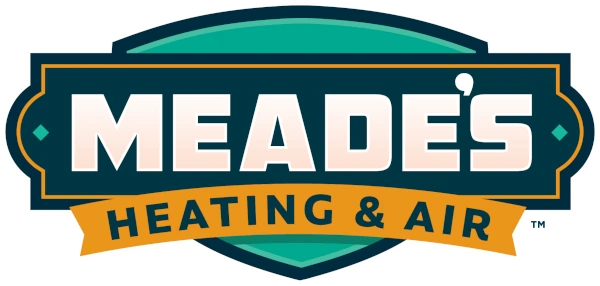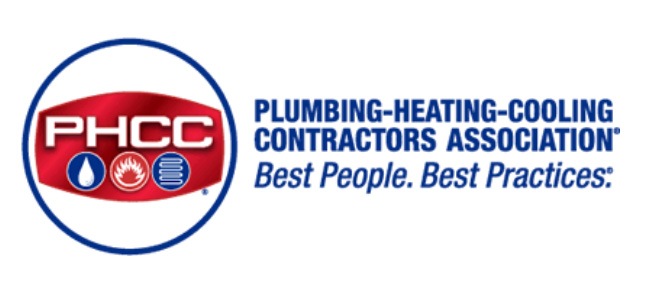The typical winter here in Sterling, VA brings temperatures that frequently reach the lower 20s on the Fahrenheit scale. That makes having an efficient and reliable heating system for your home essential. For decades, gas furnaces were the obvious choice in this area. Their low price, excellent longevity, and decent efficiency made them popular. However, heat pumps are rapidly gaining traction as a successor to gas furnaces. They offer unparalleled efficiency that makes them worth their somewhat higher costs. Unfortunately, many homeowners have some outdated notions about heat pumps that prevent their adoption. Here’s everything you need to know about heat pumps and how they fare in the Virginia winter.
What Is a Heat Pump?
As their name implies, a heat pump is a mechanical device that pumps heat from one place to another. Although you may not know it, you likely have plenty of experience with heat pumps and even own a few. A refrigerator is one type of heat pump in nearly every home. It collects heat from its sealed interior and expels it into the air in your kitchen. Another type of heat pump you’ve likely used is an air conditioner. It gathers heat from your home’s air and carries it outdoors for release into the environment.
In an HVAC context, a heat pump is almost identical to a conventional air conditioner. The major difference is the inclusion of a device called a reversing valve. It’s a mechanism that lets a heat pump control the direction its refrigerant flows. With that ability, a heat pump can function like a traditional AC. However, it can also reverse its refrigerant flow and heat your home instead of cooling it.
The Heating Efficiency of Heat Pumps
An air-source heat pump is the second-highest efficiency heating system you can buy today. The highest efficiency title belongs to geothermal heating systems, which also rely on heat pump technology. Unlike a gas furnace, an air-source heat pump doesn’t consume any fuel to warm your home. Instead, it depends on collecting existing heat energy from the outdoor air. That’s possible due to an interesting scientific concept called the second law of thermodynamics. It states, in part, that heat energy spontaneously flows from warm substances to cold ones. As a result, assuming there’s heat energy in the outside air, you only need a colder substance to collect it.
In a heat pump, the colder substance is a refrigerant. It runs through a closed loop inside the heat pump, serving as a heat transfer medium. Like an air conditioner, a heat pump manipulates the pressure of its refrigerant using a compressor. When you pressurize a refrigerant, it gets hotter. When you lower its pressure, it grows colder. It’s similar to how an aerosol can gets colder the longer you depress its spray nozzle. In heating mode, a heat pump lowers its refrigerant temperature to -15 degrees Fahrenheit or below, depending on the model. That’s cold enough to collect heat outside, even on a cold winter day.
Next, the heat pump passes the cold refrigerant through an outdoor coil while a large fan circulates air over it. As that happens, the refrigerant absorbs heat energy until it boils into a warm gas. That gas then passes through the compressor, raising its pressure and temperature. After that, the refrigerant should be between 110 degrees and 140 degrees Fahrenheit. The hot refrigerant travels inside, warming your home’s air and cooling off to begin the cycle again.
In heating mode, a typical heat pump can achieve up to 400% efficiency in mild winter temperatures. That’s more than four times as efficient as any gas furnace you can buy. However, heat pumps do lose efficiency as outdoor temperatures drop. At around 25 degrees Fahrenheit, a typical heat pump operates at about 80% efficiency. That’s roughly equal to the average gas furnace on the market today.
Are Heat Pumps a Good Choice in Virginia?
The tendency to lose efficiency in low temperatures gives some Virginia homeowners pause about heat pumps. However, that trepidation is somewhat misplaced. There are a few reasons why. One is that our average low temperature is 27 degrees Fahrenheit in January. That’s the coldest part of winter, so a heat pump will offer efficiency benefits almost all the time here. There aren’t enough below-average temperature days yearly to make a heat pump a poor efficiency choice for our region.
If your concern is not having sufficient heat on an abnormally cold night, heat pumps have an answer. All heat pumps have built-in auxiliary heat production systems. They typically consist of electric-resistance heat strips. When temperatures drop enough to warrant it, a heat pump engages those heat strips to produce extra heat. While inefficient, it shouldn’t be required often enough to make much of a dent in your energy savings.
Also, there are now heat pumps designed for cold climates on the market. They can operate at high efficiency at temperatures as low as -15 degrees Fahrenheit with no need for backup heat. While you’ll spend a bit more for one of those, it can be worth it for the extra peace of mind.
It’s also worth pointing out that the average Virginian pays approximately 13% less for electricity than the average American. That helps to offset the fuel cost advantage enjoyed by gas furnaces. As a result, installing a heat pump in a house here should save you on operating costs in almost every scenario. And if you upgrade your home’s insulation, your savings will increase even more substantially.
Best of all, there are generous federal tax credits available for homeowners purchasing new heat pumps. Right now, you can claim up to 30% of the cost of a heat pump up to a maximum of $2,000. In 2025, another federal subsidy will begin that offers point-of-sale rebates of up to $8,000 on heat pumps. Local utility companies also provide credits to homeowners installing heat pumps. Altogether, those incentives can make installing a new heat pump even cheaper than installing a gas furnace.
Northern Virginia’s Heat Pump Specialists
Meade’s Heating and Air is a full-service HVAC company serving residents in and around Sterling. We launched our business on a mission to offer homeowners world-class, 21st-century HVAC services. That includes advocating for the latest in energy savings technology, like heat pumps. We provide HVAC installation, repair, and maintenance services for all heating and cooling makes and models. We also offer indoor air quality, ductwork, and water heater services. Our team of expert HVAC technicians has ample experience and training working with all kinds of HVAC systems. Plus, our staff has specific expertise in helping homeowners navigate the available heat pump tax credit programs. We can even offer financing on approved credit to help you afford a new heat pump. On top of that, we’re members of the Plumbing-Heating-Cooling Contractor’s Association and BBB accredited. We are also a NextDoor Neighborhood Fave and have countless positive customer reviews. So, if you’re interested in a new heat pump for your Sterling home, call us at Meade’s Heating and Air today!




